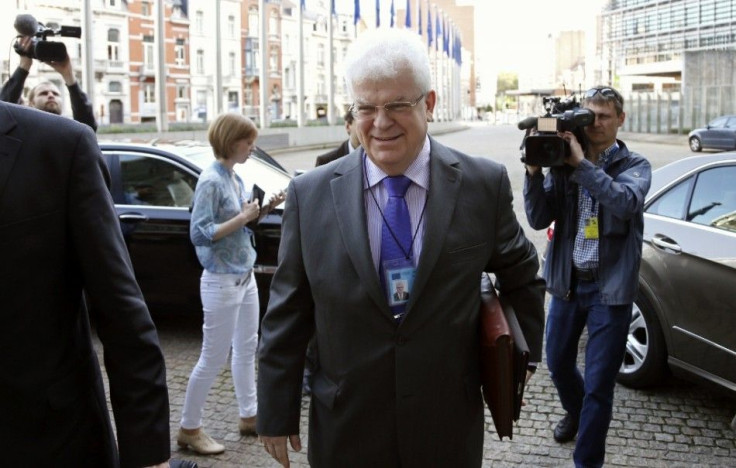US To Blunt Russia’s Edge In Propaganda War: Introduces $30 Million Bill To Finance Counter Campaigns Against Russia And ISIS

The U.S. has admitted that it is lagging behind Russia when it comes to information and propaganda war. As a remedy to it, the U.S. law makers have now introduced a new bill seeking $30 million to target “Russia’s propaganda, which is posing a challenge to the NATO system.” This new information offensive will also address the social media offensives by Islamic State.
Chairman of the Senate Committee on Armed Forces Mac Thornberry said, “our adversaries are using propaganda to shape the battlefield, drive up their support and inspire imitators. Islamic State and al Qaeda have been using this tool in the Middle East and Russia is using it deftly in Eastern Europe,” reported Washington Times.
Moscow’s Tactics
According to the U.S., Moscow has an array of tactics that include media propaganda, economic warfare, cyber warfare and covert intelligence operations to maintain its edge over adversaries. In Ukraine, Russia is using political subversion, use of proxy forces, movement of forces threatening invasion, large-scale nuclear exercises and tactical negotiations to inhibit Western intervention.
Explaining the rationale of spending at least $30 million to counter Russian and Islamic State propaganda, Thornberry said “America does not always do a good job in countering it.” He recently came from a visit to the crisis-torn Ukraine and did a study on the Russian tactics. The law maker said he is sure that that the bill “acknowledges this serious communications gap, and takes steps to correct it.”
Challenge To NATO
The bill refers to the Russian propaganda and the way it has taken advantage of ethnic disputes in building and equipping a separatist army in Ukraine under its direction. The panel feels that Russian information outlets do pose a direct challenge to the NATO system. The committee believes it is time, the Department of Defense and NATO explored how the U.S., NATO member-states together can establish deterrence mechanisms against activities such as those undertaken by the Russian government in Ukraine.
The new boost in funds for the U.S. Special Operations Command will be to expand “global inform and influence activities” against Russia and terrorist groups like al Qaeda and the Islamic State. The committee has asked SOCOM to brief the panel before July on its counter-influence program. The Committee is of the view that Russia uses propaganda, diplomatic and economic measures to play down the impact of Ukraine’s own response to its aggression and succeeded in taming the response from the U.S. and Europe in its domain of influence. The bill also said Russian information operations are undermining NATO’s collective self-defense.
John Kerry’s Advice
The panel’s view is also in sync with Secretary of State John Kerry’s thoughts on the matter. He is of the opinion that the U.S. lawmakers should release more funds to manage propaganda and “democracy promotion” programs of the U.S. across the world. Kerry told the House Appropriations Subcommittee that “Russia Today can be heard in English, do we have an equivalent that can be heard in Russian? It’s a pretty expensive proposition. They are spending huge amounts of money,” But the fact is Voice of America still has a broadcast service in Russian language that it started in 1947.
(For feedback/comments, contact the writer at k.kumar@ibtimes.com.au)





















